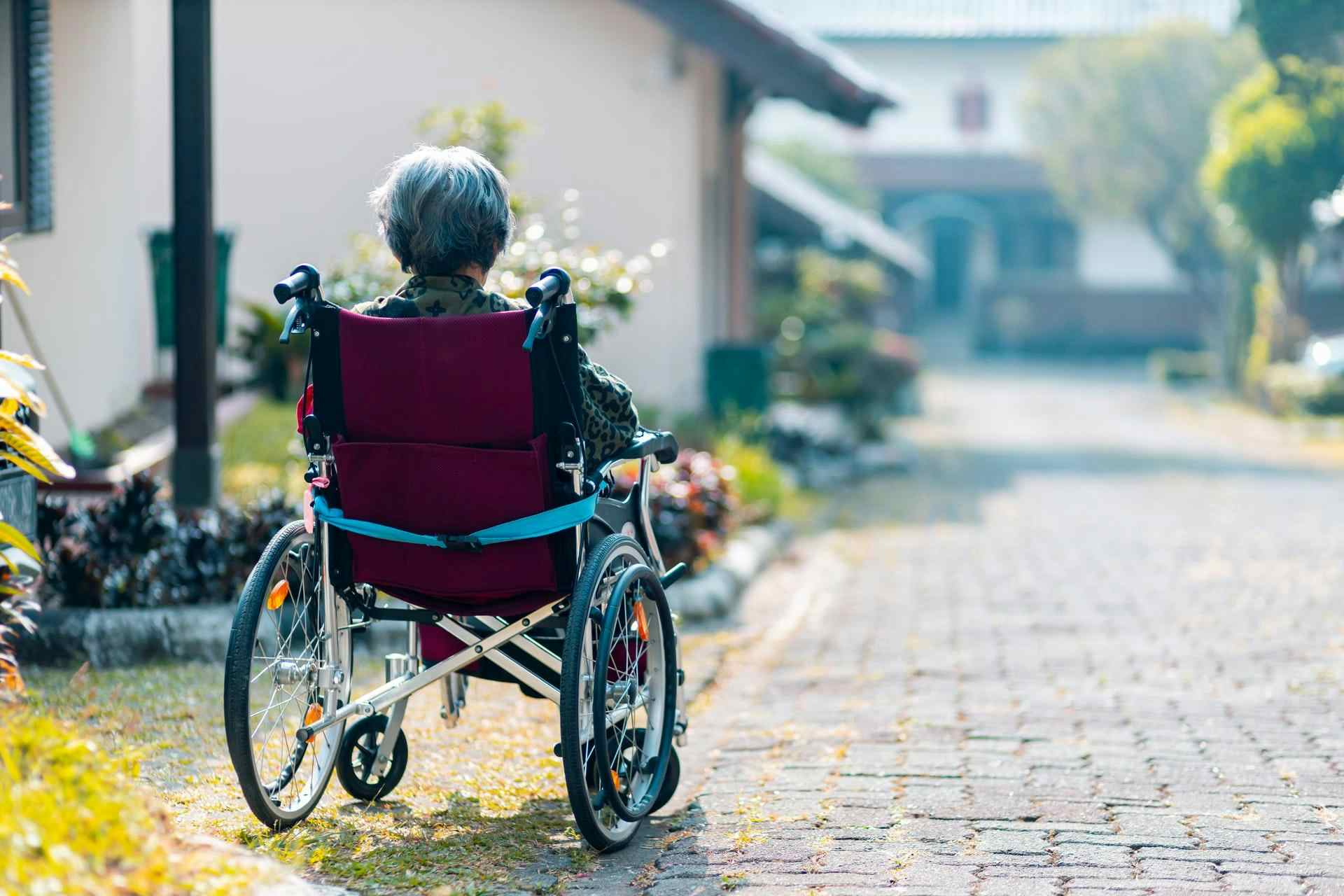Dementia refers to symptoms of brain diseases such as Alzheimer’s that cause memory loss, loss of cognitive ability, confusion and other behavioural changes. Dementia is not uncommon, so regardless of whether we are younger or older, there is a chance that we will come across it in some form at some point in our lives.
While the usual narrative surrounding dementia is that we are powerless to influence it or control it, there is also a genuine cause for optimism. New research is developing all the time, and effective next-generation treatments could be within touching distance. We now also have a much better understanding of how we can positively deal with dementia if and when a loved one experiences it.
What is dementia?
Dementia is a general term for symptoms caused by brain diseases, primarily Alzheimer’s disease, which, according to Alzheimer’s Society UK, accounts for 75% of all cases of dementia.
As of 2015, The Alzheimer’s Society reported that approximately 850,000 people were living with dementia in the UK. The UK has an ageing population, and since age is the leading risk factor for developing dementia, this is forecast to rise significantly over the coming decades.
We are living longer, healthier lives in general, but this also means more of us will reach an age where dementia becomes increasingly likely. There is a push and pull between the wonderful advancements of medicine and our brain’s natural limits for staying healthy into older age.
What are the seven stages of dementia?
In the early stages of dementia, symptoms may be very mild or barely even noticeable. For some, these early symptoms persist without much change for many years, but for others, they can progress quickly.
Dementia is a complex condition and no two cases are the same. Some people may never experience the later stages of dementia at all and may continue for years with very mild symptoms. Others may experience a much quicker progression. Where dementia does progress, it is described using 7 stages.
1. No noticeable symptoms
During the early stages of dementia, symptoms may not be noticeable to either the patient or others.
2. Very mild symptoms
As dementia begins to progress, mild symptoms of occasional forgetfulness may occur that might be indistinguishable from normality. Of course, both younger and older people experience minor episodes of forgetfulness, and at this stage, it’s tough to link this with dementia.
3. Mild symptoms
When symptoms become more evident, there are usually some typical telltale problematic episodes, such as losing items around the house, forgetting which key fits a lock or being unable to recall some words. Faces may become harder to recognise, and planning and organisation may worsen. This is usually the stage where patients and their families seek out a doctor.
4. Moderate symptoms
Stage 4 is more defined, and it’s relatively straightforward at this stage for medical professionals to give a reliable diagnosis of the cause of dementia. Short term memory may become increasingly impaired, even in familiar surroundings like the home and garden.
5. Moderate to severe symptoms
At stage 5, day-to-day activities can become increasingly difficult. Basic tasks such as dressing, going to the toilet and going upstairs to bed may require support and care from others. Conversations become disjointed, and confusion becomes more intense.
6. Severe symptoms
Patients at stage 6 likely require constant supervision and care. They can be a danger to themselves and others if left unchecked. Severe confusion combined with anxiety and panic can be distressing for the patient and their loved ones.
7. Very severe symptoms
Stage 7 occurs when dementia is approaching its closing terminal stages. Dementia does not cause death in itself, but very severe dementia can cause the immune system to fail, and patients can lose the ability to eat and drink.
Caring for people with dementia
Dementia is very complex, and each case is different. Care needs vary massively from the very basics of emotional support, love, care and kindness to more complex specialist care involving support for dressing in the morning, going to the toilet, eating, taking medication, etc.
During the early stages of dementia
Be optimistic
It’s crucial to remain both optimistic and open to the possible progression of the disease. Yes, dementia may progress quickly, but often, mild symptoms persist for years before they get any worse. Medications and memory exercises can work very well with some to slow down symptoms.
In the early stages of dementia after diagnosis, be optimistic with your loved one. Engage in activities that take their mind off the diagnosis. While dementia may always strike us as inherently and inescapably sad or bleak, this is not always the case, and many patients with dementia can live a happy life even if symptoms gradually worsen.
Stay engaged
Like any other severe disease or condition, discussing dementia openly with friends or family members may seem like a difficult task. If at all possible, though, try and engage with your loved one in the early stages of dementia and support them to make positive life changes that may slow the progression of the disease.
Gently breaking the ice can pave the way for a better level of understanding between you and your loved one. A problem shared is a problem halved.
Exercise and socialise
Exercising both the body using regular physical exercise and the brain using puzzle games or by reading can slow the progression of dementia. Regular socialising and engaging in activities that enhance mental wellbeing can also slow dementia.
Whether your friend or family member loves long adventurous walks or cosy nights playing Scrabble, these are the kinds of activities that are very beneficial for support in the early stages of dementia. Focus on trying to create a regime or strategy for general mental and physical health. Routine is crucial here so if you can, help your loved one organise their days and weeks with an accurate calendar that can tell them what they’re doing, when and with who.
During the later stages of dementia
Use available support
There are many support networks for those dealing with and experiencing dementia. Carers UK is a great place to start and provides some excellent insights into what it’s like to care for a loved one in the UK including any benefits you can claim and the role of social services in your area.
It’s also possible to find Dementia Cafes set up by Alzheimer’s UK. Those diagnosed with dementia and their friends, family members or carers can join for a friendly chat attended by carers and medical professionals.
Charities like Alzheimer’s UK are always on hand to support those experiencing or dealing with dementia and can put you in touch with relevant services in your area.
Annabel James, founder of www.agespace.org, told Health Times about the importance of seeking support for yourself during this time, too. She said: “Caring for someone living with Dementia can be extremely challenging emotionally and physically. It is so important to care for the carer whether that is you or a relative.
"There is lots of help and support locally, through the GP, charities and other organisations. More and more 'dementia friendly' services are available including film screenings, shops and other local services, choirs, theatre performances and other events and activities. So, don’t despair or suffer in silence, there is help available.”
Prepare for the future
Preparation for the future is very important when dealing with a loved one’s dementia.. Whether you need to organise finances, re-examine living situations or restrict access to cars, machinery and other potentially dangerous items or equipment, these are the kind of things you can work through with the assistance of medical professionals or social services.
Adapt the way you communicate
Communication is one of the critical areas that can break down with dementia. It can also be one of the greatest struggles for carers or loved ones dealing with dementia. As forgetfulness sets in, people may forget who you are, forget what they are saying, or forget things about their past.
Do
- Be prepared to repeat things as much as you need to
- Simplify questions to avoid confusion
- Avoid frustration in your tone of voice
- Focus on your body language - smile, touch and remain personable and open
- Avoid tricky subject matter with a fib or distraction
- Refer to anecdotes and stories that stick in the mind of your loved one
- Be funny and create laughter!
Don't
- Urge your loved one to remember something that they’re unable to
- Get annoyed when they can’t give a straight answer
- Be blunt about their disease or condition
- Remind them of past traumas
- Talk to them in an inpatient or demeaning manner
- Threaten or chastise them if they don’t comply with instructions or behave as you’d like them to
Create a calming environment
During the later stages of dementia, your loved one’s behaviour may become increasingly challenging for you both, both mentally and physically. Difficult to deal with behaviours may creep in, possibly involving physical aggression, hallucinations, paranoia and other delusions.
It’s important to remember that these are not a reflection on character, but just how someone with dementia deals with stress and anxiety.
The dementia is to blame, not the person. Repeat this to yourself if things get difficult.
To reduce challenging behaviour, try and create a soothing and relaxing environment. Identify triggers of anxiety and stress and redirect attention to something positive as and when stress develops. Use photo albums and videos to stay reconnected with the past and play calming music, films or TV programs - it’s essential to try and stay connected to the positive aspects of life, even when dementia symptoms reach the later stages.
Dealing with dementia in a loved one
Dementia is becoming more frequent, and more of us need to become aware of it and the best ways of dealing with it. We are living longer lives in general, and dementia is somewhat of a side effect of this. While dementia might seem bleak and discouraging, it’s essential to concentrate on moments of love, affection and kindness, and to treasure them.
Remember, not all cases of dementia will worsen to the later stages, and it’s entirely possible that with proper treatment, care and support, we can positively influence some aspects of dementia.








